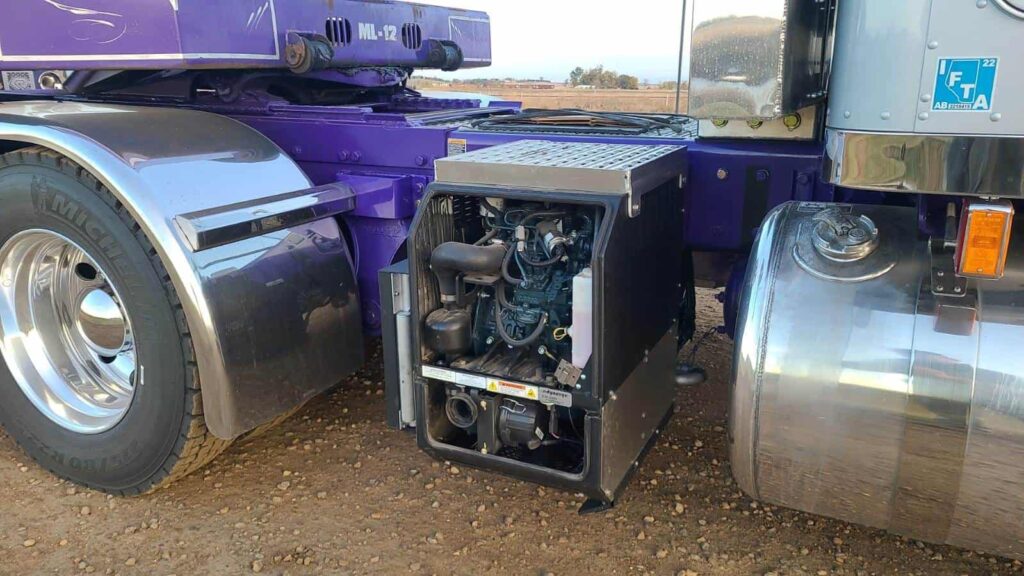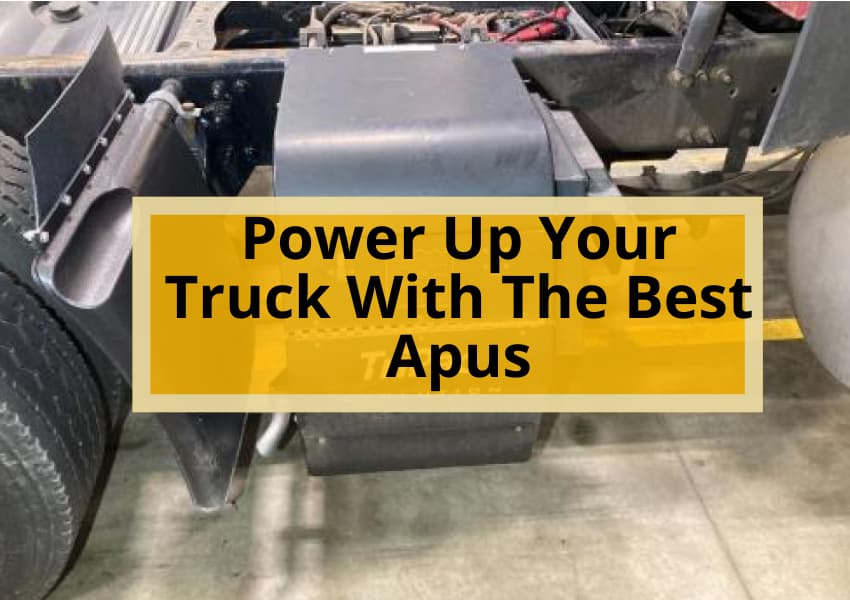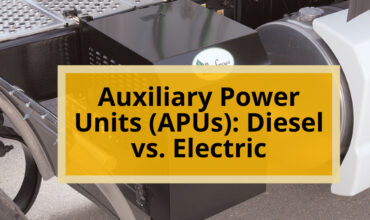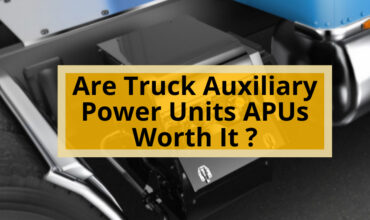Auxiliary Power Units (APUs) are an essential component of any trucking fleet, providing a reliable source of power for heating, cooling, and secondary appliances. APUs come in two main types: diesel and electric, each with its own unique benefits and drawbacks.
Diesel APUs are suitable for long-haul trips with higher power output, while electric APUs are more affordable to procure and maintain. The choice between diesel and electric APUs depends on various factors, such as the type of cargo, the distance of the trip, and the budget.
Diesel APUs have been the traditional choice for years, offering higher power output and reliability for long-haul trips. However, electric APUs are becoming increasingly popular due to their lower cost of ownership and maintenance, making them a more attractive option for fleets looking to reduce their operating costs.
In this article, we will explore the top brands of APUs and the advantages of each type to help fleet managers make an informed decision when choosing the best APU for their trucks. Understanding the benefits and drawbacks of each type of APU and choosing the right brand can help fleet managers optimize their operations, reduce downtime, and increase profitability.
Types of APUs
The pre-existing knowledge highlights that APUs can be powered by either combustion or electricity, and when considering the purchase of an APU, it is important to consider the type, price, size, output, and maintenance requirements.
Diesel APUs are a popular choice for long-haul transits as they offer higher power output, making them suitable for powering multiple appliances. They are more expensive to purchase and maintain, and require regular oil changes, filter changes, and battery changes.
On the other hand, electric APUs are cheaper to procure and maintain, but they have limited power output and occasional power disruptions. They are best suited for short-haul trips and powering minimal appliances.
APUs are available in different power configurations and engine outputs, with reputable brands such as Carrier, Thermo King, RigMaster Power, and Go Green APU offering a range of options for trucking companies.
Ultimately, the choice between diesel and electric APUs depends on the specific needs of the trucking company, including the length of trips, number of appliances, and maintenance budget.

Top APU Brands
One important consideration when choosing an auxiliary power unit (APU) for a truck is selecting a reputable brand. Popular choices in the industry include Carrier, Thermo King, RigMaster Power, and Go Green APU. These brands offer high-quality and reliable APUs with a warranty, as well as additional services such as customer support and maintenance.
When purchasing an APU, it is important to consider not just the initial cost and power output, but also the maintenance requirements and potential breakdowns. Opting for a brand with dedicated customer support and maintenance benefits can ensure that any issues or breakdowns during delivery trips can be quickly and efficiently resolved.
With these reputable brands, truckers can rest easy knowing that their APU will provide the necessary power to run their air conditioning, heater, and other appliances while also reducing fuel consumption and carbon footprint.
also read : Power Up Your Tent Camping Experience With Inverter Generators
Maintenance and Support
Maximizing the longevity of an APU requires routine maintenance, including regular oil changes, filter replacements, and battery checks, as neglecting these procedures can result in costly breakdowns and repairs. To ensure optimal performance, it is recommended to follow the manufacturer’s recommended maintenance schedule. This may vary depending on the brand and type of APU, but typically includes oil changes every 500 hours of operation, filter replacements every 1,000 hours, and battery checks every three months.
In addition to routine maintenance, truck drivers should also be aware of common APU issues and how to troubleshoot them. These may include problems with the fuel system, starter motor, or generator. To diagnose and repair these issues, it is important to have a basic understanding of the APU’s components and how they work together.
In some cases, it may be necessary to seek the assistance of a professional technician or contact the manufacturer’s customer support team for guidance. By taking proper care of an APU and addressing any issues promptly, truck drivers can ensure that their auxiliary power unit remains reliable and efficient for years to come.
Frequently Asked Questions
What is the average lifespan of an APU?
The average lifespan of an APU can vary depending on factors such as usage and maintenance. Regular maintenance, including oil and filter changes and battery replacements, can extend the lifespan. Diesel APUs have higher fuel efficiency than electric ones.
Can APUs be installed on all types of trucks?
Installation requirements for APUs may vary among truck types, with compatibility limitations to some models. Technical specifications provided by manufacturers can assist in determining whether an APU can be installed on a specific truck.
Are there any environmental regulations on APUs?
Government policies mandate environmental impact reduction in the trucking industry. To comply, manufacturers produce efficient and low-emission APUs, with some brands utilizing renewable energy sources. The Energy Policy Act of 2005 allows additional weight allowances for diesel APUs.
What is the typical cost of APU installation?
The typical cost of APU installation depends on factors such as brand, type, and engine output. Diesel APUs are more expensive than electric APUs, with installation costs ranging from $6,000 to $10,000, while electric APUs can cost between $3,000 and $5,000.
Can APUs be used while the truck is in motion?
It’s a well-known fact that APUs are used to power trucks’ air conditioning, heaters, and secondary appliances. However, the efficiency comparison between diesel and electric APUs while in motion remains a topic of discussion. Despite occasional power disruptions, electric APUs are cheaper to maintain and procure, while diesel APUs have higher power output, making them ideal for long-haul transits.






